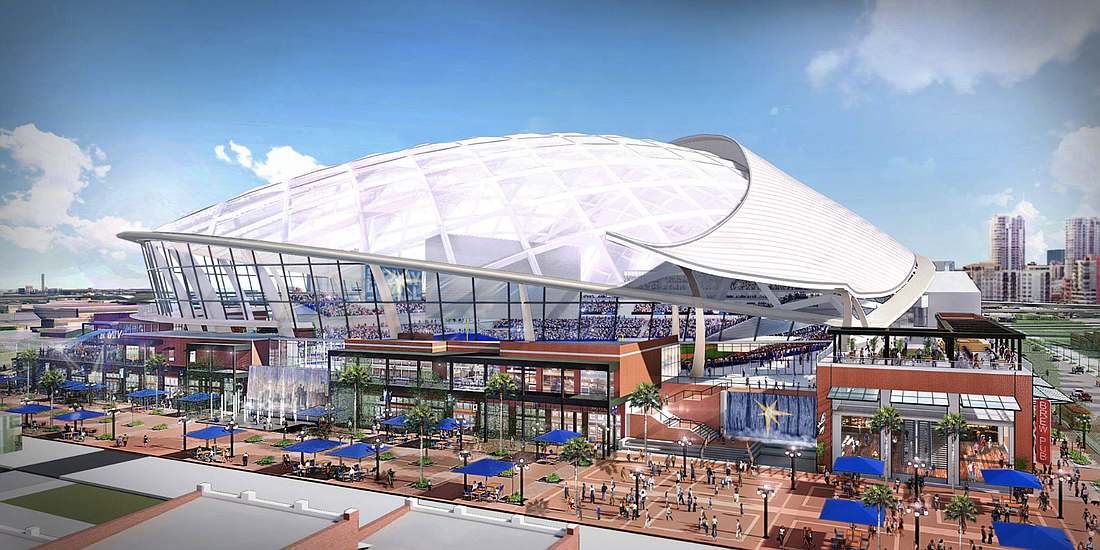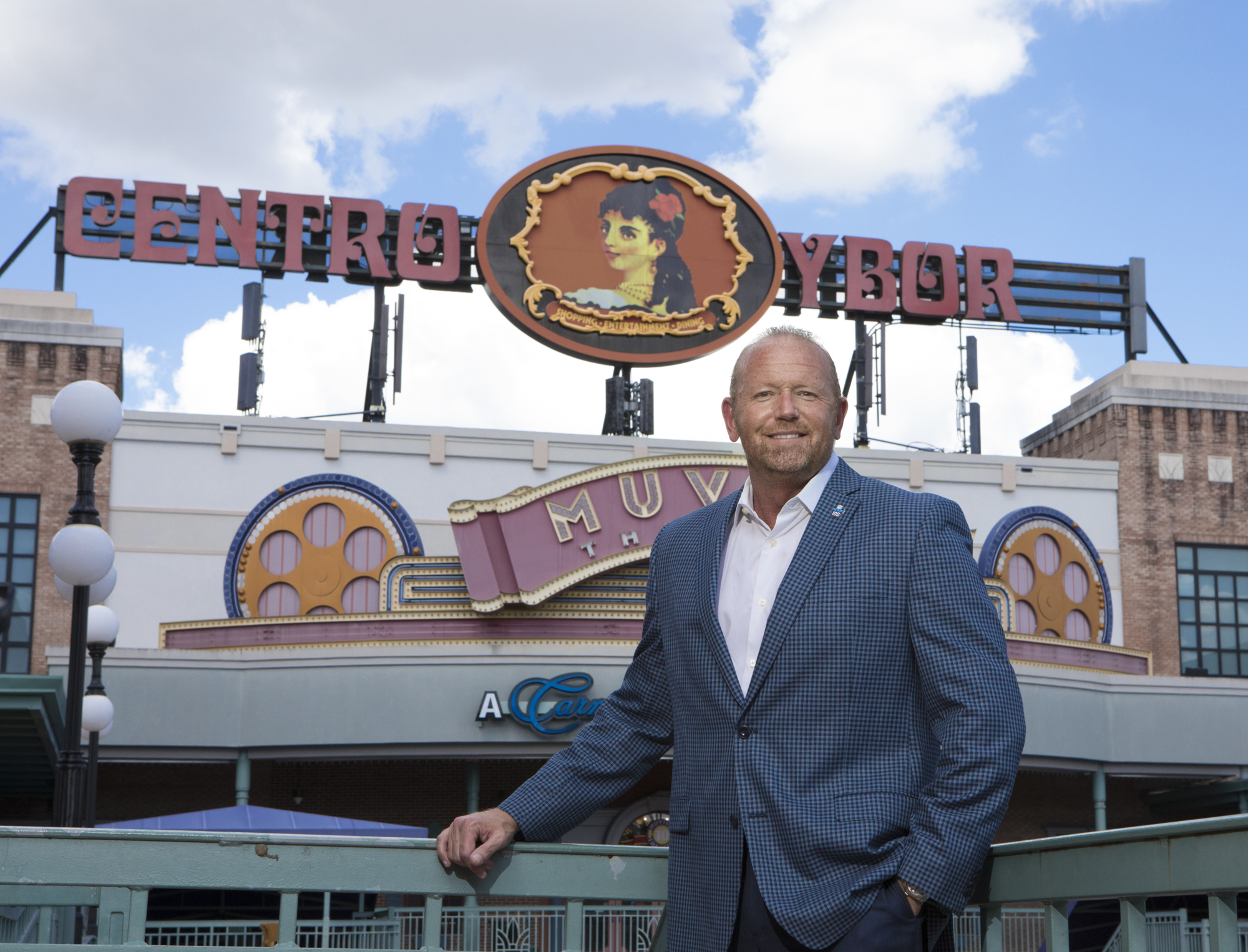- December 25, 2024
-
-
Loading

Loading

Strike three. Ybor City is out.
On Dec. 11, Tampa Bay Rays principal owner Stu Sternberg officially bailed out of negotiations with Tampa and Hillsborough County for a new home for the Major League Baseball team in Ybor.
The stunning announcement came hot on the heels of a rebuke of the county’s stadium financing framework by MLB Commissioner Rob Manfred, who took the unusual step of criticizing local officials over the plan’s lack of specific details. (That lack of details includes a short memo from area officials to the league office.)
“While momentum and progress were real, we were not close at all to a workable framework.” Stu Sternberg, principal owner of the Tampa Bay Rays
The dramatic turn of events came just two weeks before the Dec. 31 deadline imposed by the city of St. Petersburg for the team to find a new home in the Tampa Bay area. The team has played at Tropicana Field, in downtown St. Petersburg, since it was founded in 1998.
The rejection of the Ybor City site also raises more questions than it answers.
Foremost among them: Is 2019 the beginning of the end for the Rays in Tampa Bay?
Building a new stadium for the team “was one of our main initiatives from the beginning,” says Sternberg during a press conference at MLB's winter meetings in Las Vegas, reflecting on his goals for the franchise when he bought it in 2005. The 2015 agreement struck with St. Pete to look at sites across the bay, he says, “provided a very generous three-year window” for the club to secure a new home in the region.
“Unfortunately, that window is closing without us achieving our goal,” he says. “While momentum and progress were real, we were not close at all to a workable framework.”
In July, Sternberg unveiled plans for a 28,000-seat, fixed-roof ballpark in Tampa’s historic Ybor City neighborhood that would cost $892 million to build. Despite the high price tag, enthusiasm was high. Tampa Bay Rays 2020, a booster group comprised of local leaders, helped lead the charge for private-sector investment in the project.

Jason Woody, a longtime nonprofit leader who also serves as vice chairman of Rays 100, the outreach arm of the Rays 2020 group, expressed frustration with the political leadership of Tampa and Hillsborough County. He believes the region stands a real chance of losing the team to a baseball-hungry city like Las Vegas, Montreal, Charlotte, N.C., or Portland, Ore.
“I’m disappointed in the deal falling apart but I am also disappointed in Tampa," Woody says in an interview. "For us to respond with a one-page memo with nine bullet points and a total of 270 words, I have to ask, does Tampa really want this? It was a half-baked offer made at the 11th hour. We keep talking about Tampa being the next great city, well, let’s start acting like it."
Woody points to the fact that his group was able to secure commitments from private donors of $160 million, over a 10-year period, as proof the business community would rally around the Ybor City plan, given sufficient assurances from local government. But that's where the deal fell apart, he says.
"I’m calling out the elected officials, both the county and the city," he says. "What bothers me is that some officials told me privately that they support [the Ybor City plan], but then why won’t they come out and support it publicly? If you don’t want it, be honest with the community; be honest with the Rays. Do your job and be transparent. Tampa is better than this. We’re better than that offer."
Woody also takes exception to the way that Ron Christaldi, a Tampa attorney and fellow member of the Rays 100, has been portrayed as a fall guy for the collapse of the deal. According to Woody, one of Christaldi’s clients, Chicago-based investment firm Oak Street Real Estate Capital, offered to finance the entire cost, all $892 million, of the stadium; however, county leaders thought the proposal’s interest rate was too high and saw Christaldi’s involvement as a conflict of interest.
“People should be thanking Ron instead of chastising him,” Woody says. “He brought the only deal that we are aware of to the table. Being an attorney at a law firm, that’s what he does. If he’d been a banker who brought a deal to the table, maybe his bank would have gotten a commission on it.”
It’s also disingenuous of the county to say funding sources did not materialize, Woody adds. Multiple leads were passed along from the Rays 2020 group to local officials, he says, not just Christaldi’s.
“All of a sudden the county is saying it didn’t have a deal, well, guess what, you did have a deal,” he says. “But you’re also calling out Ron Christaldi because he brought you a potentially viable deal? Maybe it wasn’t the preferred terms but who’s to say the terms couldn’t be negotiated? All Ron did was bring in a potential suitor who had the ability to pay for the entire thing, not just half. [Oak Street] had the ability to finance the entire amount. That’s how big they are.”
And although he calls them “brilliant businesspeople,” Woody says the Rays brain trust should shoulder some of the blame because of their unrealistic expectations of public financing. “The Rays have to understand that the economic environment is different. It used to be that public funds from tax dollars were available, but now those tax dollars are going for different things.”
Sternberg, in his Dec. 11 press conference, admitted to being “wildly disappointed” by the result of the negotiations with Hillsborough County, but says, “The result certainly wasn’t due to a lack of effort on the part of any of the parties involved.” He praised Tampa Bay Rays 2020 and its leadership, particularly Chuck Sykes, president and CEO of Tampa-based Sykes Enterprises, who co-chairs the group along with Christaldi.
Talk will now turn to the team’s future, or lack thereof, in St. Petersburg, where the Rays remain contractually obligated to play at Tropicana Field until 2027. If nothing else, the collapse of the Ybor deal adds another layer of intrigue to the Rays’ recent purchase of the Tampa Bay Rowdies, the soccer club that plays its home matches at St. Pete’s Al Lang Stadium — a waterfront property that the Rays unsuccessfully targeted as a stadium site a decade ago.
For now, Sternberg says there’s no change in the organization’s focus on operating a successful franchise in the Tampa Bay area. But MLB will undoubtedly prod him behind the scenes to secure a long-term home for the team, whose profile is on the rise thanks to a surprising 90-win season and manager Kevin Cash’s unorthodox “opener” pitching strategy that’s been copied by rival clubs.
“We are fully committed to helping the Rays remain and thrive in Tampa Bay for decades and generations to come,” Sternberg says. “Major League Baseball is a large part of what defines Tampa Bay as a region, and I continue to be enthusiastic about finding a way forward. This is not the announcement I expected to make, yet it’s a very promising time for our franchise. I’m excited about the start of the 2019 season and optimistic for what the years ahead will bring.”